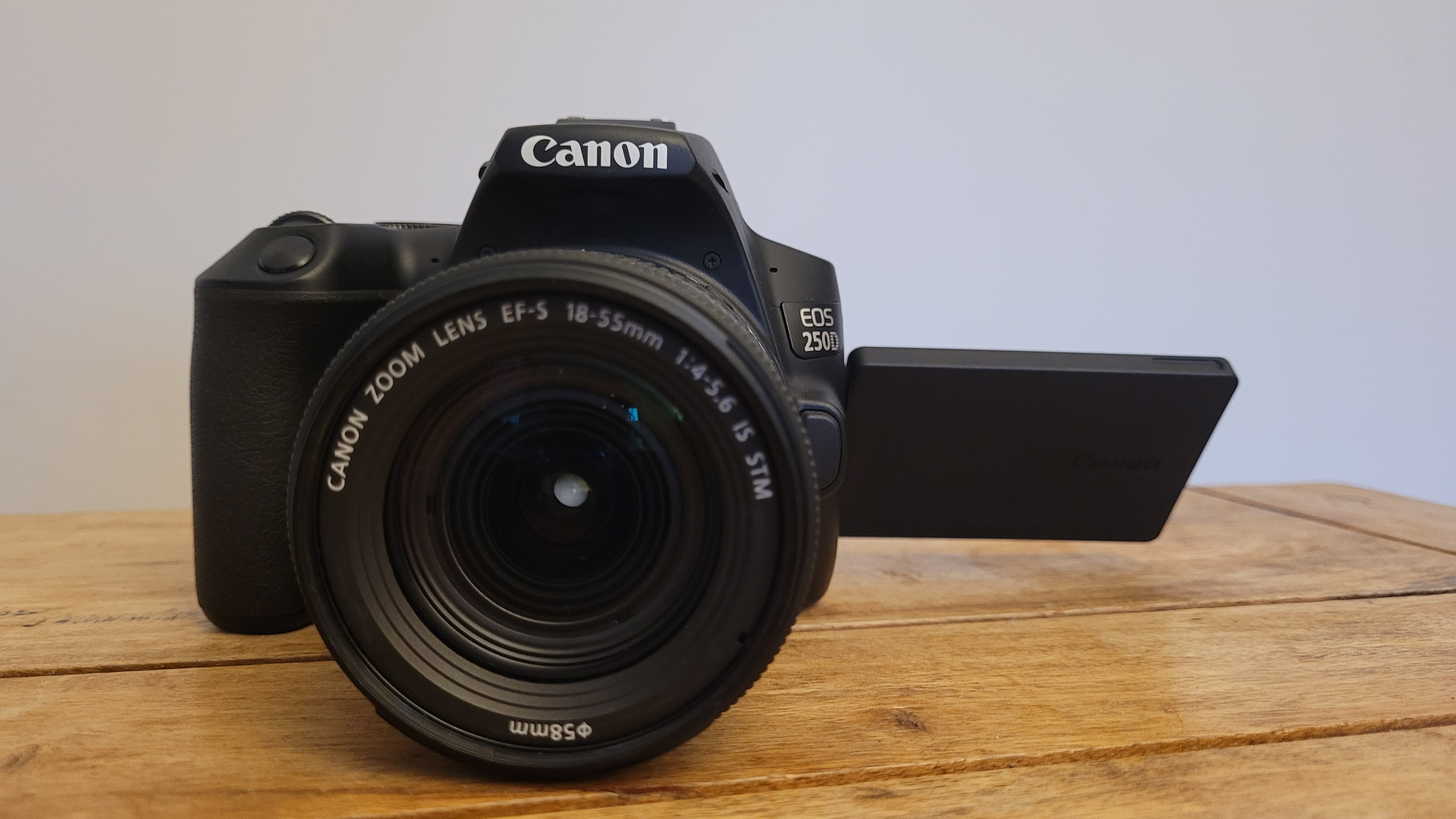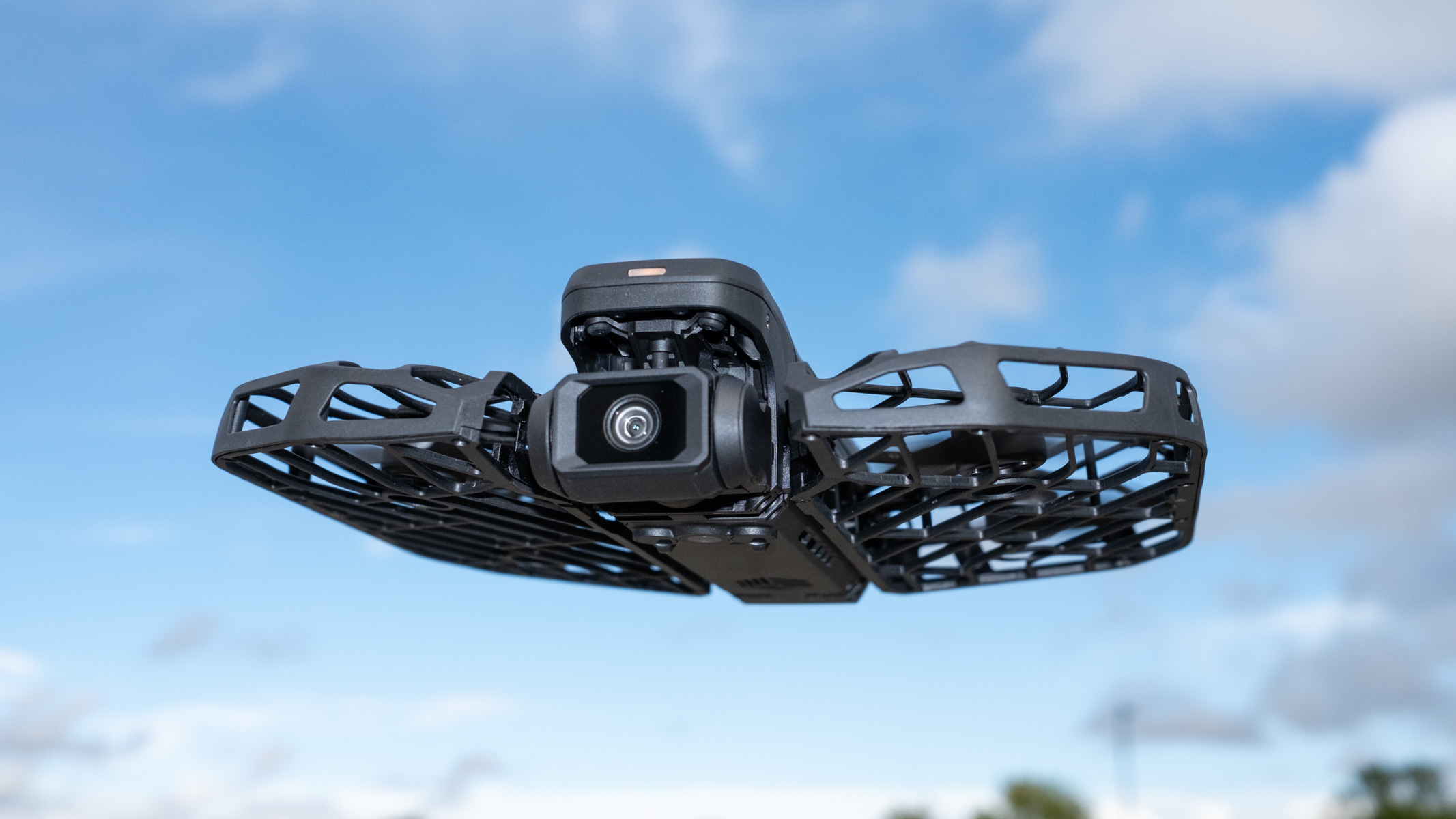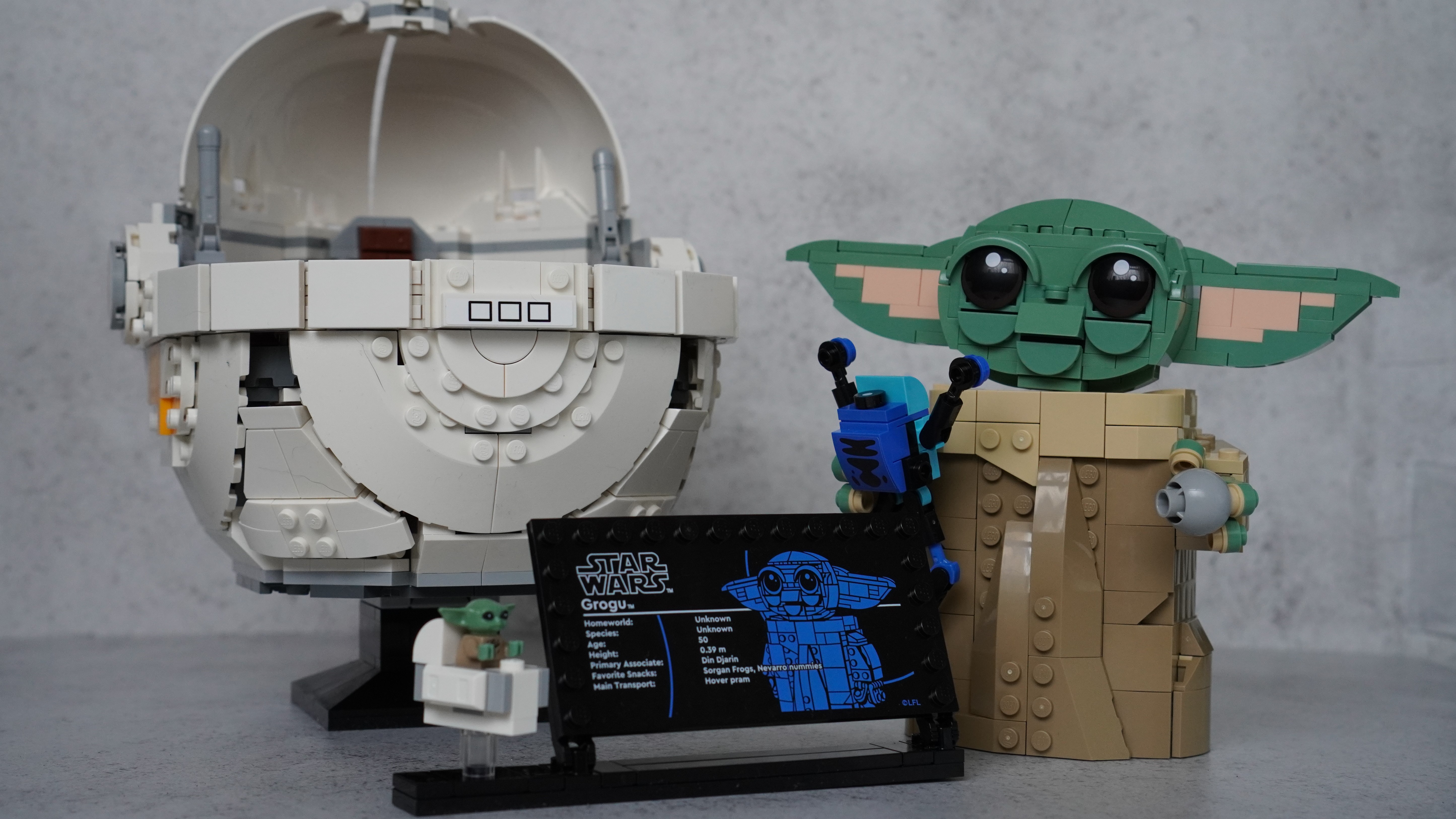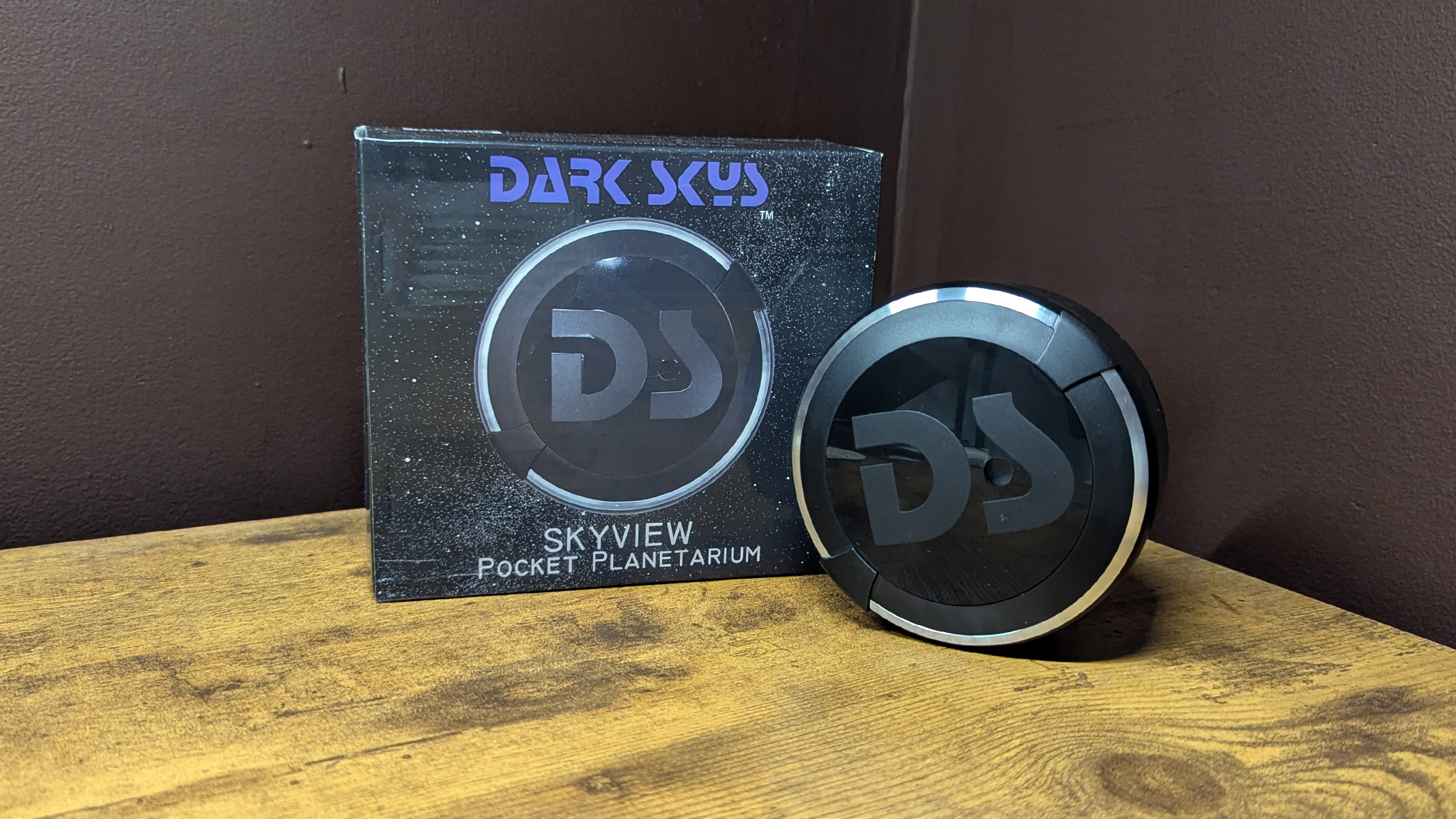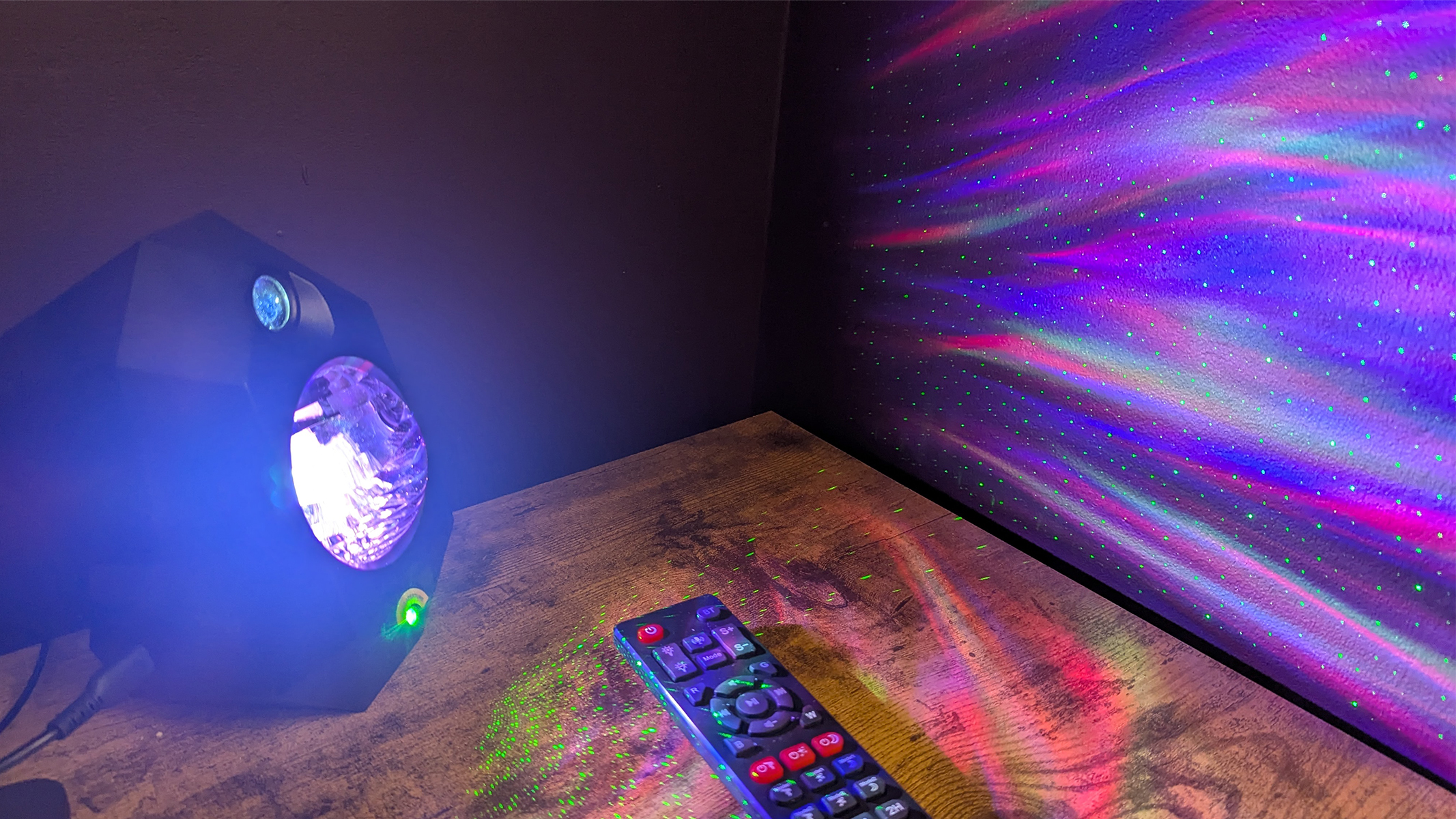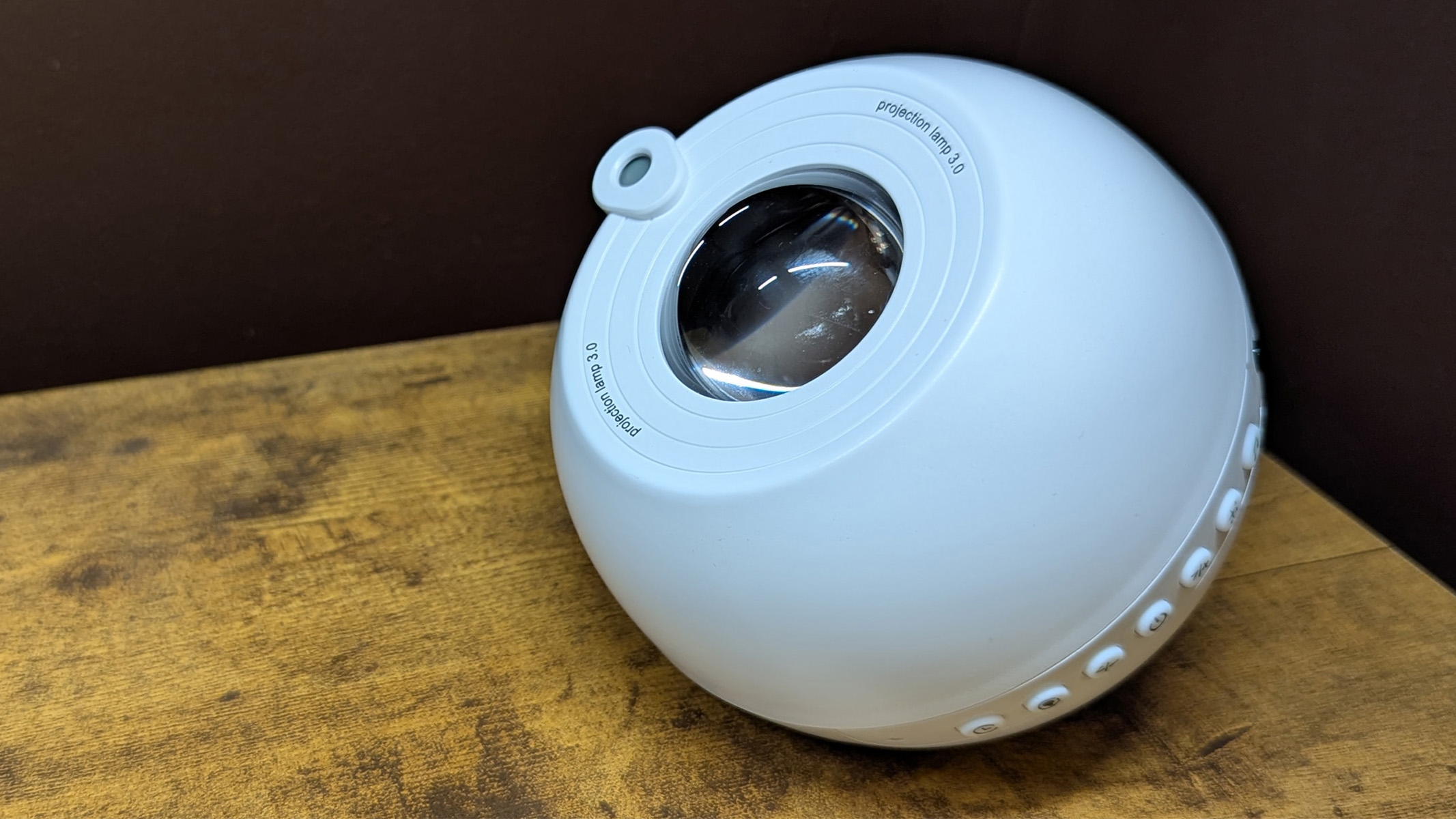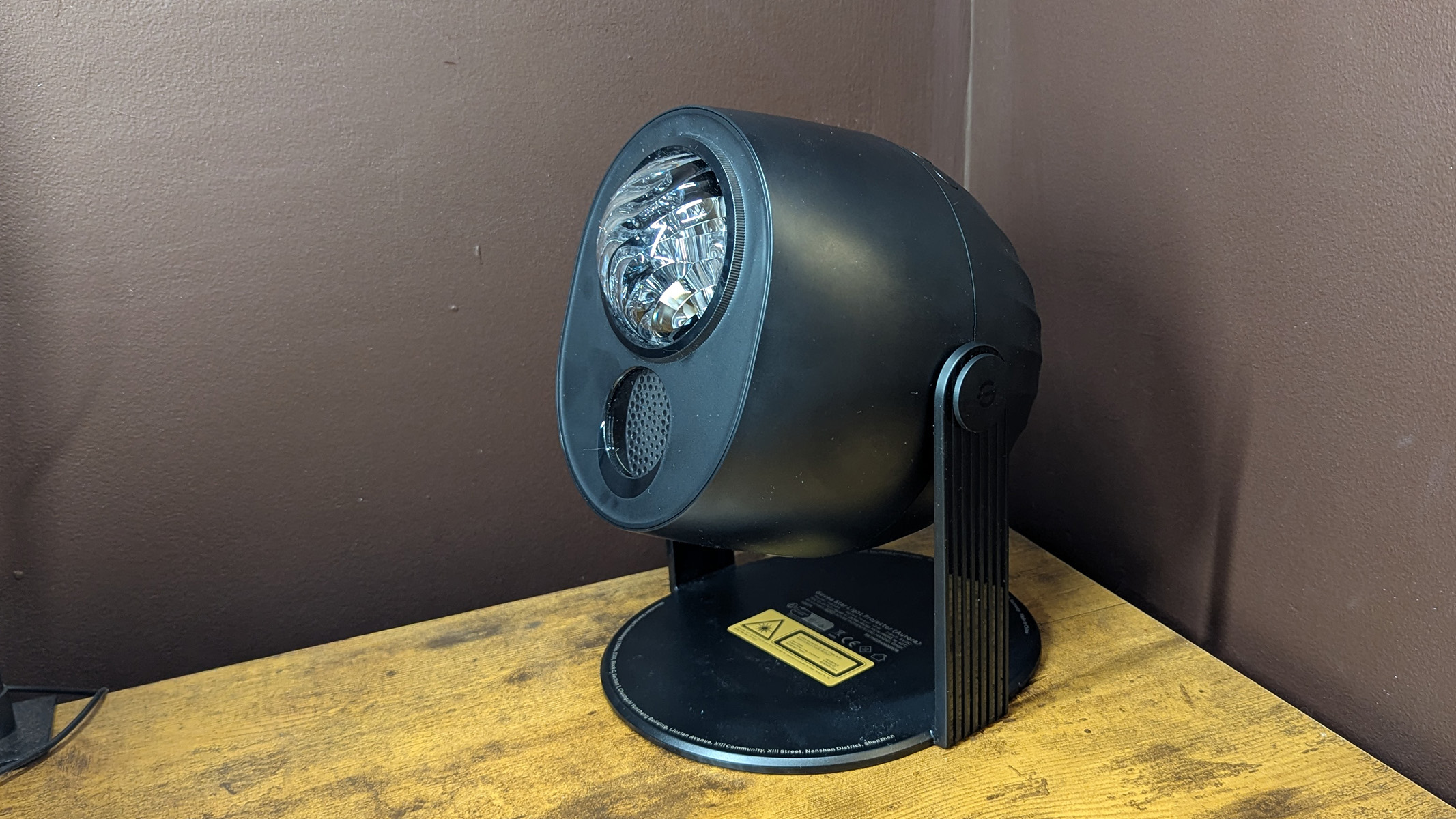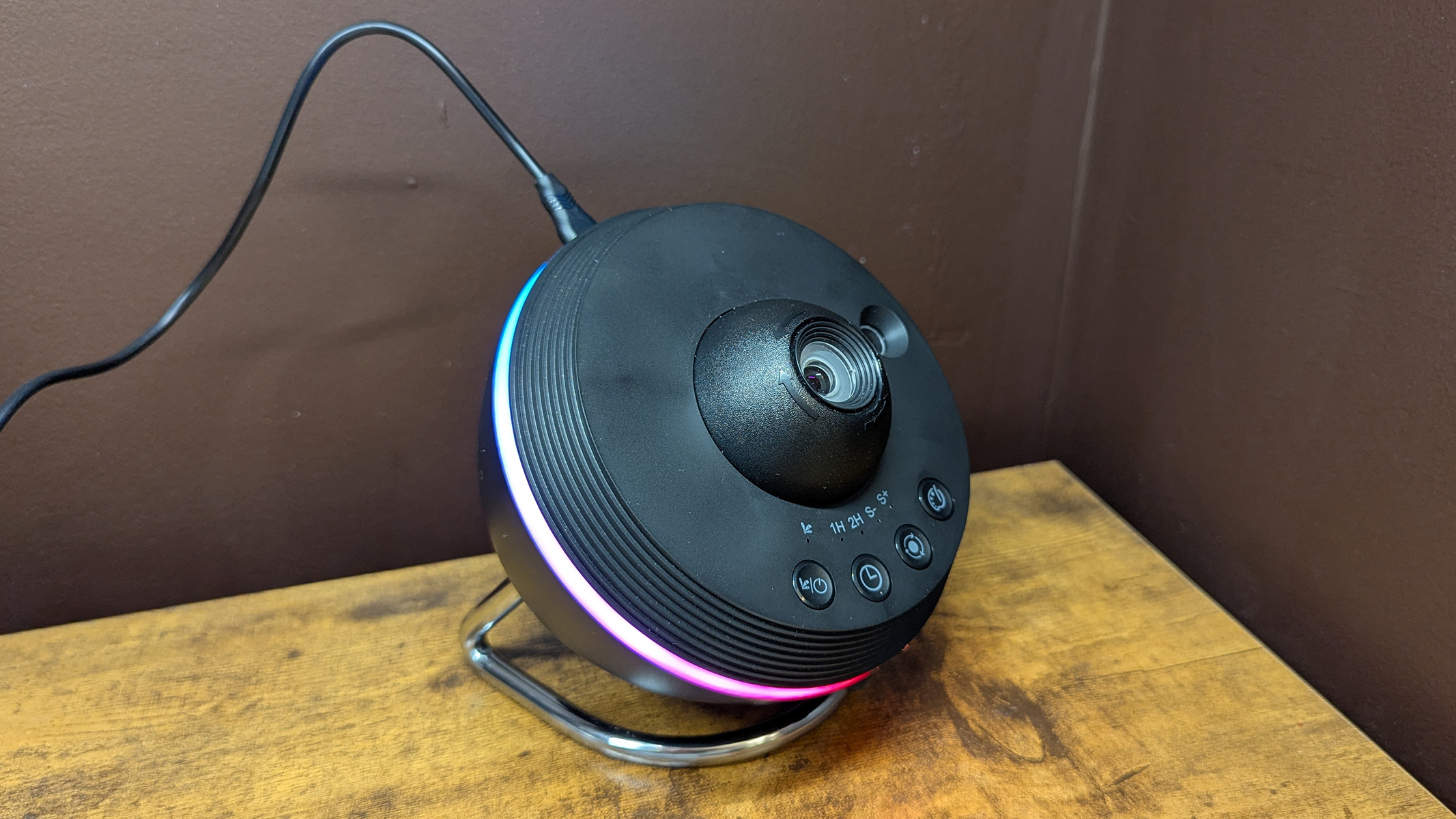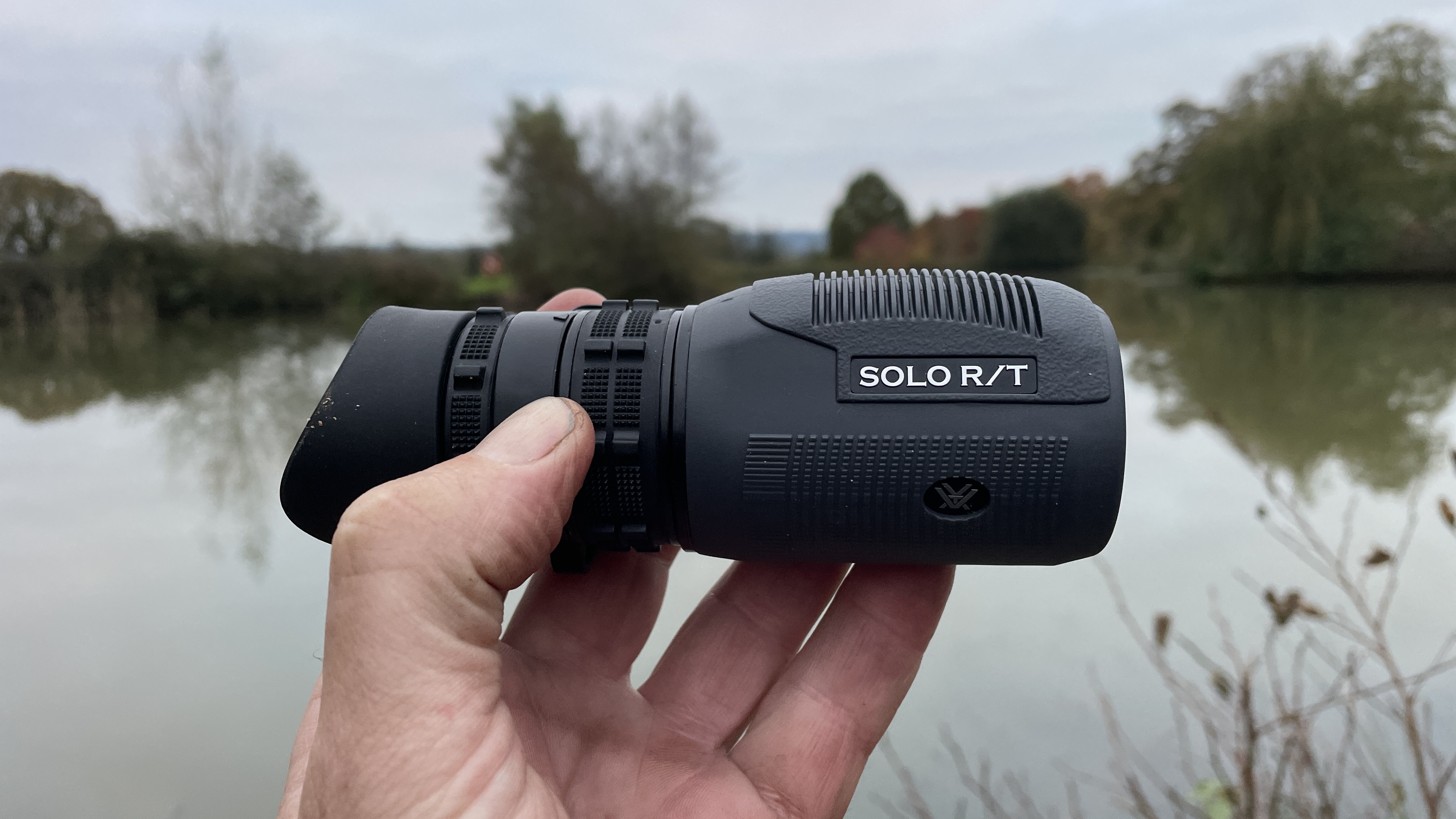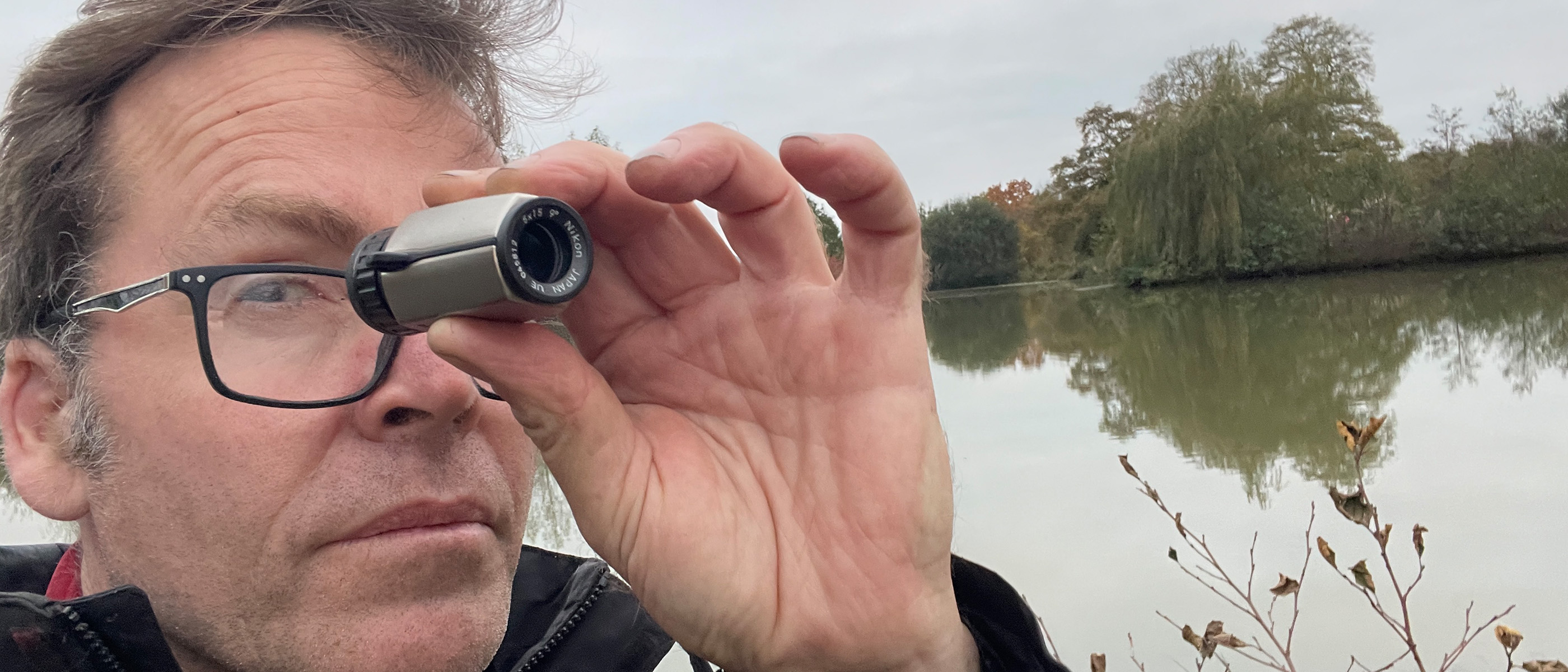Space Verdict
A winner for beginners with in-built guides to show users around the camera and image effects reachable from within the camera itself. Decent stills resolution and 4K video make it suited for photography newcomers that want to shoot a bit of everything.
Pros
- +
Creative UI assist is ideal for beginners
- +
24.1MP stills and 4K video offer plenty of detail
- +
Lightest DSLR in the world
Cons
- -
APS-C crop sensor means limited lens choice
- -
The plastic casing feels cheap
Why you can trust Space.com
The Canon EOS Rebel SL3, also known as the 250D outside of the US, is a beginner-friendly, entry-level DSLR camera that performs exceptionally well across the board in all kinds of photography. It’s perfect for portraits when paired with an appropriate lens and has Eye Auto Focus that helps photographers keep the focus on subjects, but is equally adept at shooting landscapes and even astrophotography when utilizing its wide 100 to 25,600 ISO range.
Sensor: APS-C 24.1MP
Lens mount: EF and EF-S
ISO range: 100-25,600 (expandable to 51,200)
Video: 4K 25p inter-frame
Weight: 459g
Memory card slots: 1x SD/SDHC/SDXC UHS-1 compatible
It can shoot 24.1MP stills at a max burst speed of 5FPS, which is fast enough for most photography newbies and can even do pretty well at capturing basic wildlife and action images (though don't expect anything extraordinary in that area).
In-built user interface aids and creative effects set this camera apart from the rest of the Canon line-up, supporting beginner photographers every step of the way. Its vari-angle touchscreen is versatile and helpful in all shooting situations.
There's a reason this excellent APS-C crop sensor Canon appears on our best cameras list and in our best beginner cameras guide. Not sure if the Canon EOS Rebel SL3 is right for you? Perhaps one of the best mirrorless cameras might take your fancy. But to find out if the EOS Rebel SL3 is the one, read on.
Canon EOS Rebel SL3: Design
- Feels comfortable and chunky in the hand, even for kids
- The compact design makes it extremely portable
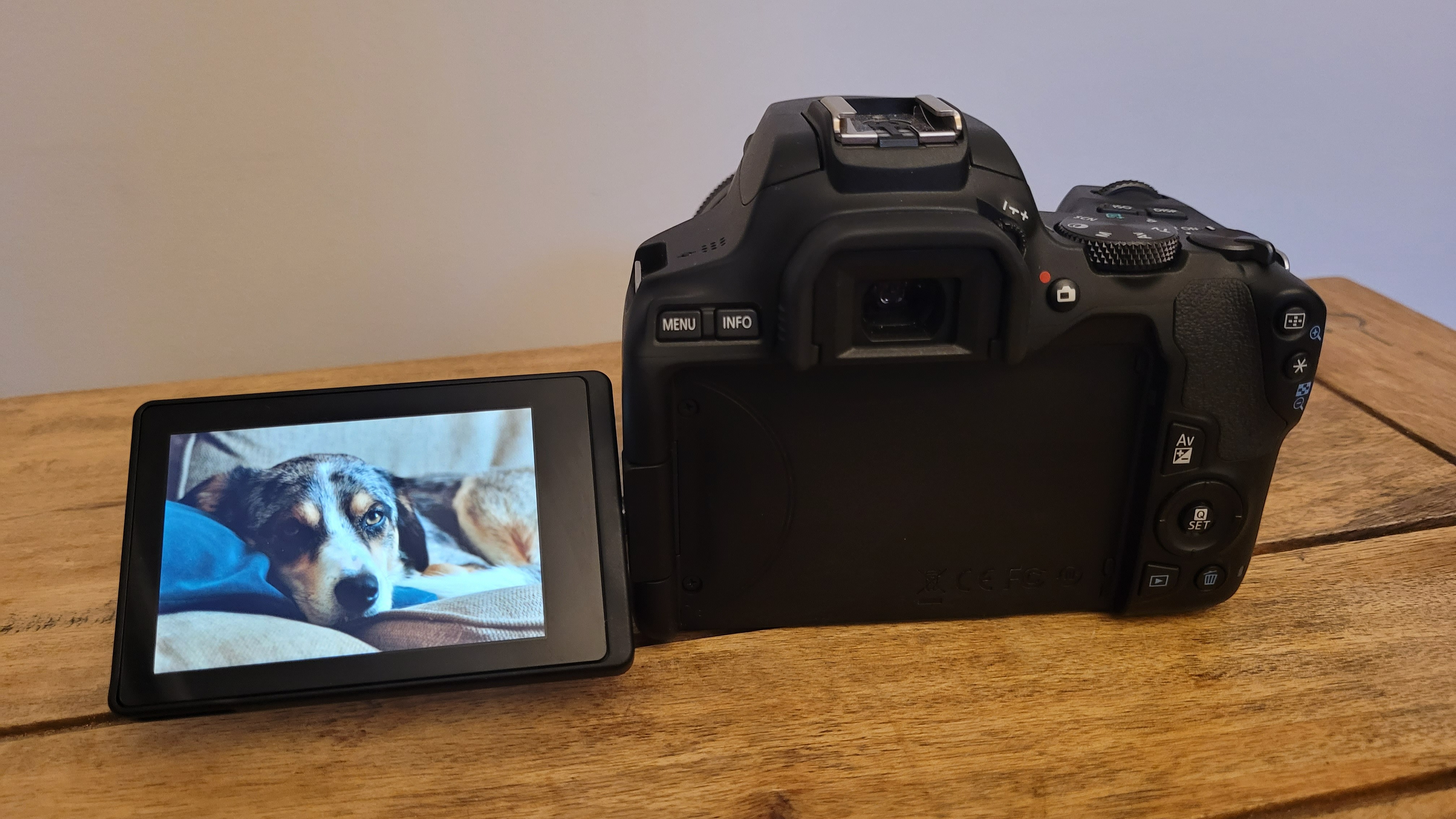
The first and most obvious advantage of the lightest DSLR in the world is its compact design. Small and chunky, it has elegant curves which reach around the front of the camera body, which feels like it gives a nod to the higher-end cinema cameras that Canon also produces. It has a legitimate high-end DSLR feel thanks to the relatively deep hand grip and solidity of settings dials and shutter release button, though it's not too big to fit into smaller hands either, making it ideal for younger children to use.
Because of the space-saving that Canon has had to do on this small DSLR, there are some areas in which we felt the design could be improved. For instance, it seems that in a bid to drop the height of the camera the connection ports on the side of the camera have been split left and right. The external remote release port and 3.5mm microphone port on the left of the camera sit in the familiar location but the mini-HDMI and micro USB ports are over on the right, frustratingly sitting smack-bang in the middle of where we'd put our hand to hold the camera. Though, arguably this shouldn't be too much of an issue because if you're tethering or shooting to an external monitor it's likely the Rebel SL3 will be mounted on a tripod anyway.
Canon EOS Rebel SL3: Performance
- Automatic exposure and autofocus in video mode are great
- Dynamic range is good but struggles in areas
- Shooting FPS is adequate for beginners
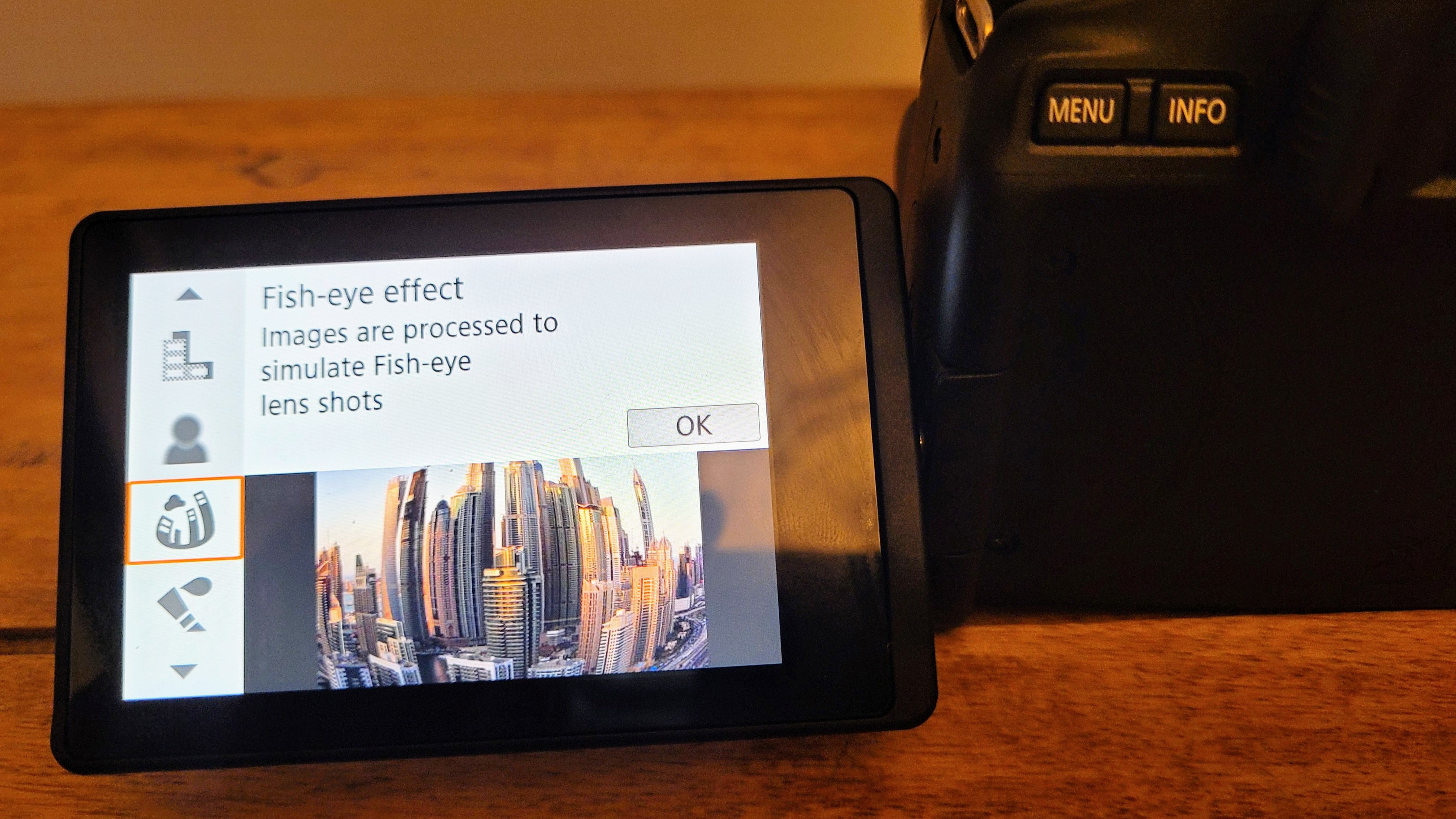
For budding photographers and videographers that need something small and light the EOS Rebel SL3 (250D) is a great contender. Shooting stills photographs at 5FPS the camera can keep up with most of the action as kids whizz through the garden or hobbyist motorsports events. Of course, it'll never compete with the likes of the EOS 5D Mark IV or the EOS 1D-X Mark II, but for its demographic it's perfect. Though, we'd like the buffer a little bigger as we found the camera chokes up after eight shots.
A useable ISO range spanning from 100 to 25,600 is useful for low light shooting and particularly for astro. Though due to the inherent issues with crop-sensor cameras including high ISO noise, it may struggle to perform taking clear astrophotographs. Astro is certainly doable though, with the aid of noise reduction software.

The stand-out features come in the form of Guided UI and Creative Assist modes which make it simple to operate the camera without having to crack open the manual. Guided UI is actually incredibly helpful, not just for the photo uninitiated, but for anyone picking up this camera for the first time. It displays helpful diagrams and descriptions for menu items as well as camera shooting information on the rear screen.
Creative Assist mode is essentially a treasure chest of in-camera image manipulation tools that affect shots in different ways. Some examples include Grainy B/W, Soft focus, Fish-eye effect, Miniature effect, and HDR art. This is particularly handy for those that don't wish to spend much, if any, time processing their photos in image-editing software. Though anyone wishing to edit their photos in the future may want to refrain from this as images are saved as JPEG only in Creative Assist mode which means effects cannot be undone. To shoot RAW users have to switch to another mode like manual or aperture value.
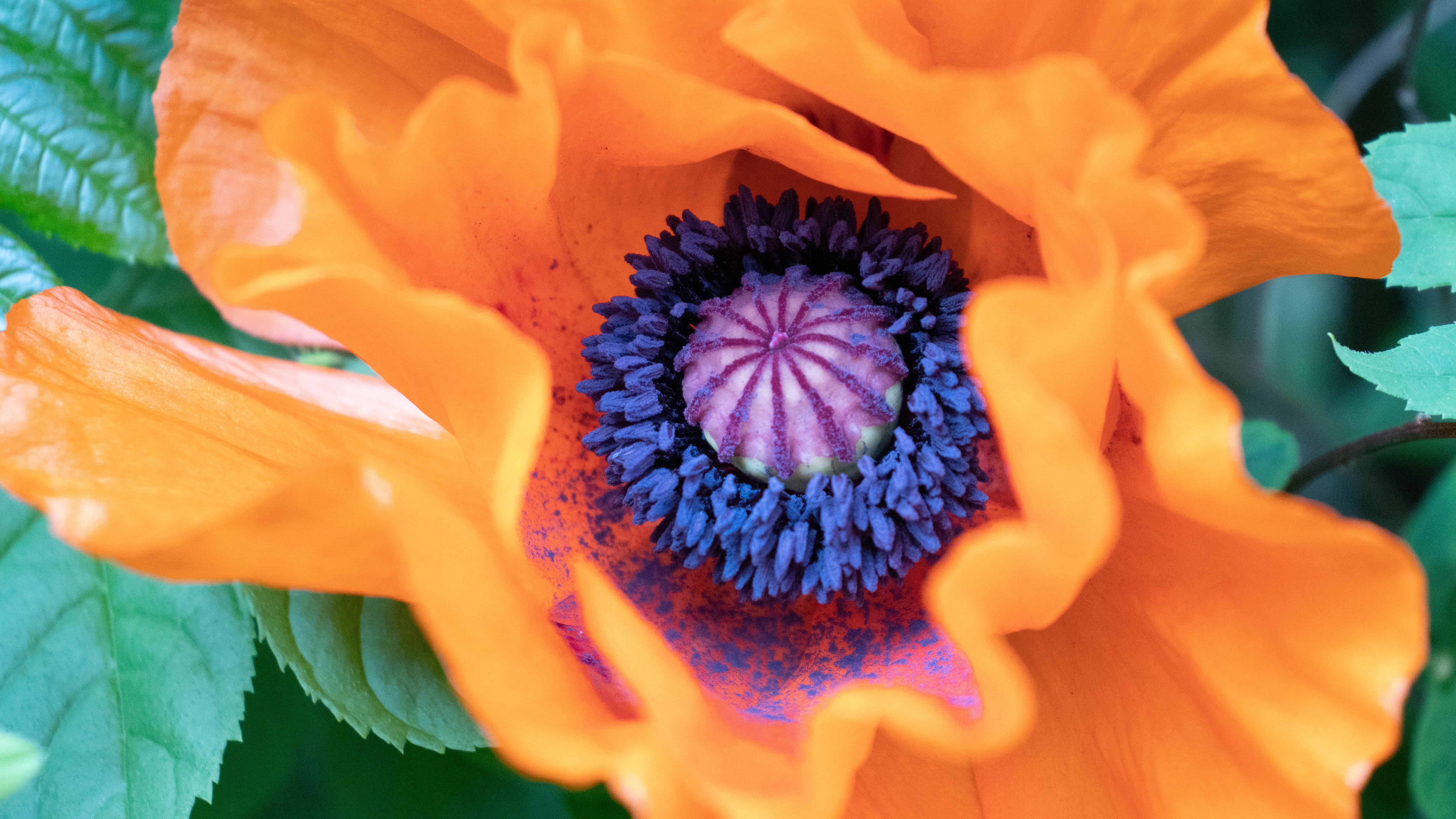
Canon EOS Rebel SL3: Functionality
- The lift-up pop-up flash is elegantly simple
- The vari-angle screen is helpful for awkward shooting positions
- Touchscreen controls make it easy to change settings
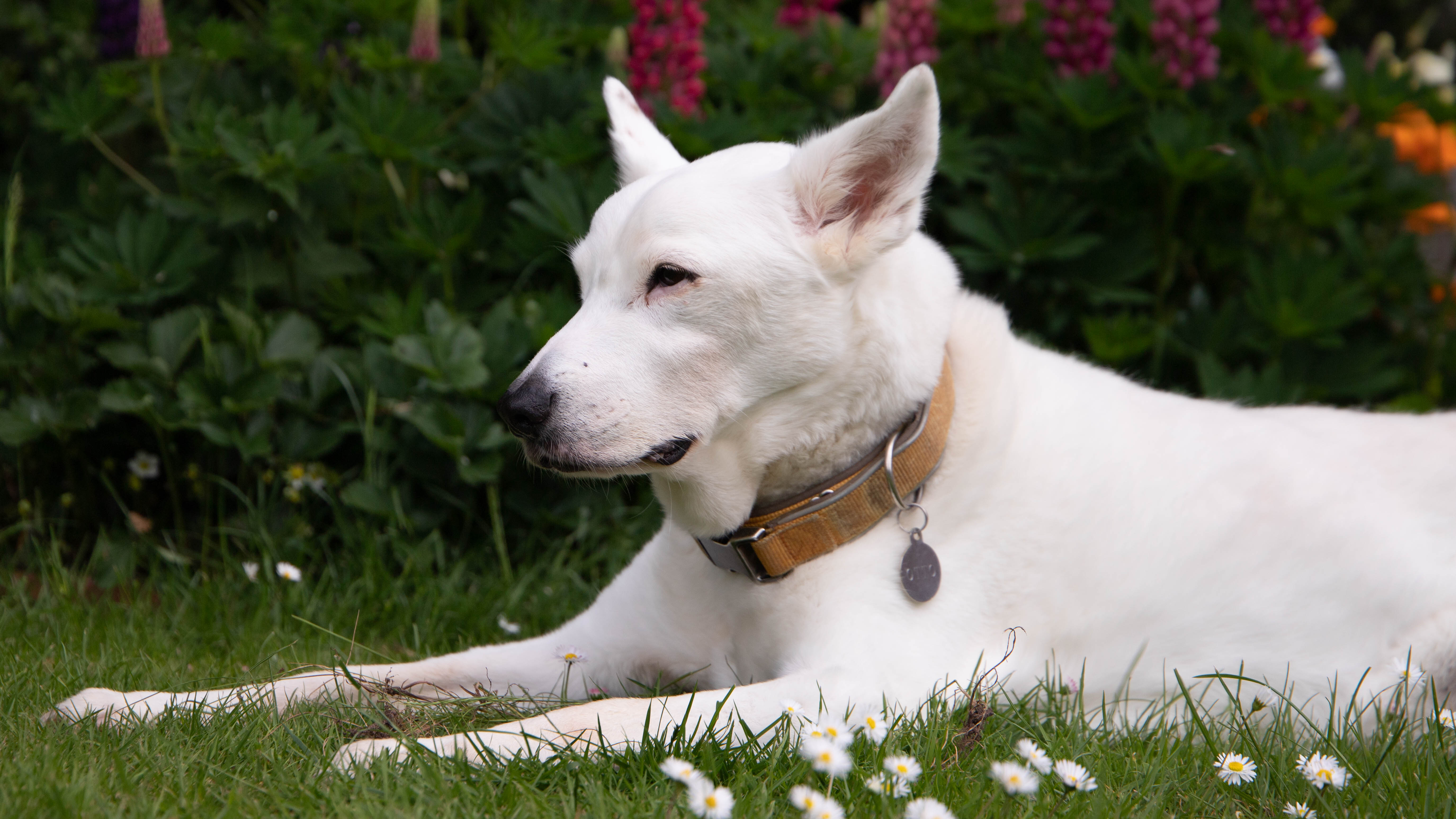
Day-to-day the Canon EOS Rebel SL3 is a remarkably easy-to-use camera that doesn't disappoint when it comes to image quality. The vari-angle touchscreen makes it easy to shoot in awkward positions, whether trying to capture images from above the heads of a crowd or down low at the flowers in the park. Camera settings can be controlled on the rear screen or via the buttons on the body.
The pop-up flash functions elegantly with a simple lip on either side of the front and raises with a simple flick up with a finger. We prefer this over other pop-up flash designs which depend on a more complicated button and release catch mechanism.
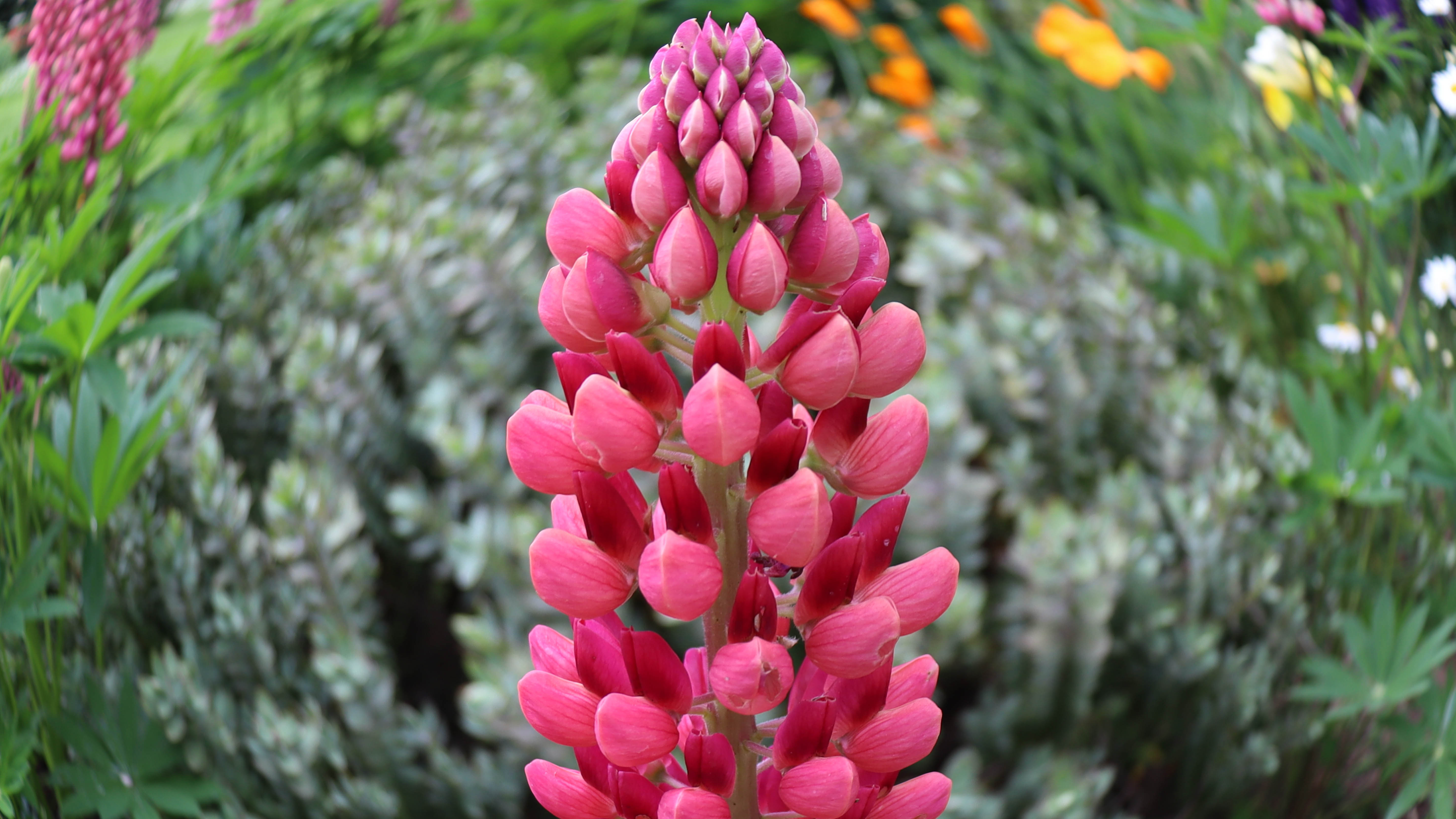
Dials are suitably textured for easy control in all weathers and the rubber grip around the hand grip feels safe in the hand, but we do wish there was some kind of texturized rubber on the other side of the body, instead replaced with more of the smooth plastic.
Capturing portraits in focus is now a doddle thanks to the upgraded autofocusing system that features Eye Auto Focus, taking the onus off the photographer and putting it squarely in control of the camera. Autofocusing, while not blisteringly fast, impresses across the board in areas with plenty of natural light and operates competently during video recording as well.
Should you buy the Canon EOS Rebel SL3?
Day-to-day, the Canon EOS Rebel SL3 is a remarkably easy-to-use camera that doesn't disappoint when it comes to image quality. The vari-angle touchscreen makes it easy to shoot in awkward positions, whether trying to capture images from above the heads of a crowd or down low at the flowers in the park. Camera settings can be controlled on the rear screen or via the buttons on the body.
The pop-up flash functions elegantly with a simple lip on either side of the front and raises with a simple flick up with a finger. We prefer this over other pop-up flash designs which depend on a more complicated button and release catch mechanism.
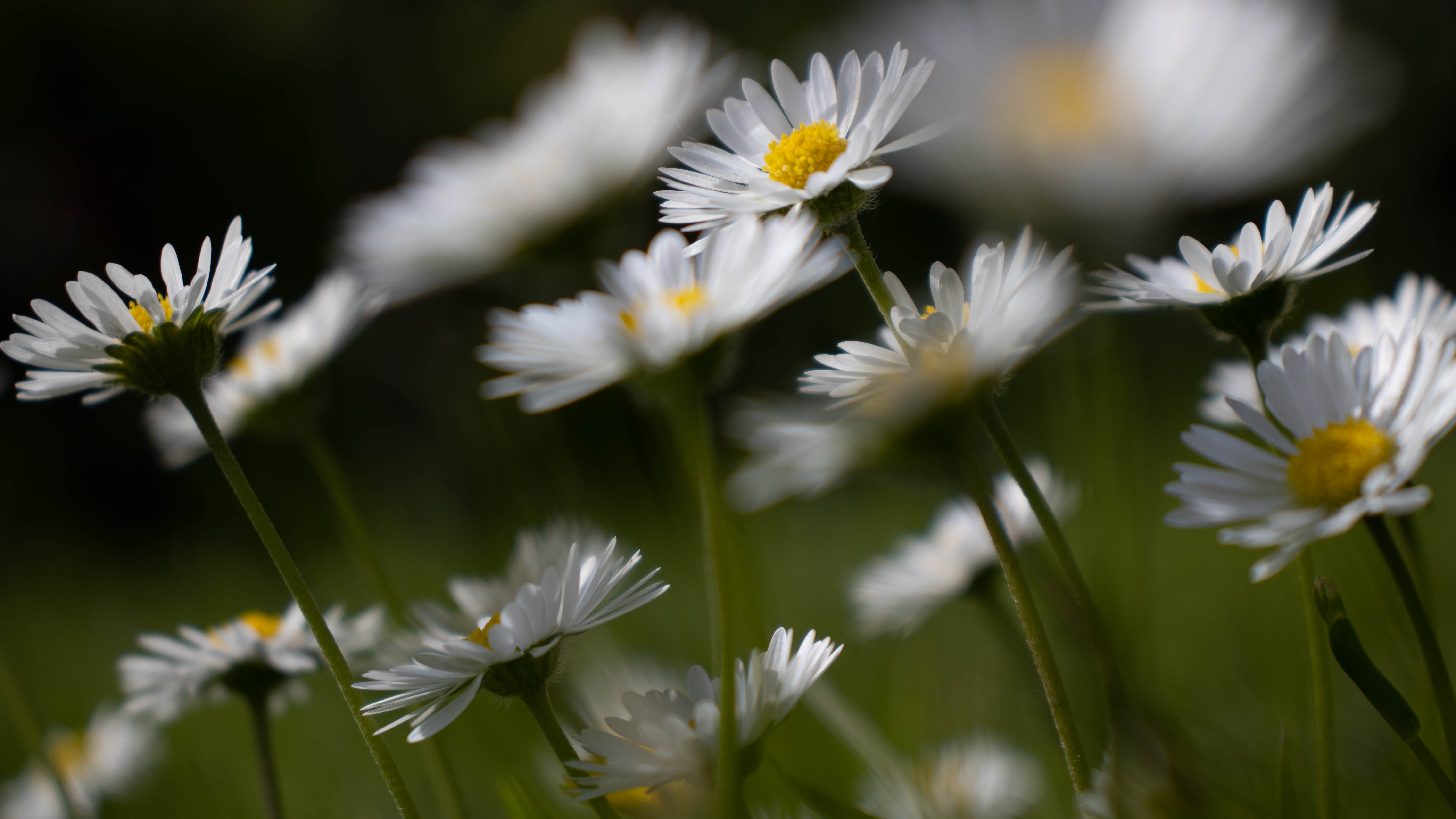
Dials are suitably textured for easy control in all weathers and the rubber grip around the hand grip feels safe in the hand, but we do wish there was some kind of texturized rubber on the other side of the body, instead replaced with more of the smooth plastic.
Capturing portraits in focus is now a doddle thanks to the upgraded autofocusing system that features Eye Auto Focus, taking the onus off the photographer and putting it squarely in control of the camera. Autofocusing, while not blisteringly fast, impresses across the board in areas with plenty of natural light and operates competently during video recording as well.
If this product isn’t for you
Aimed at the beginner market, this entry-level DSLR isn’t suitable for everyone, especially for the more experienced or those needing to push their camera harder.
For intermediate photographers and videographers, we'd recommend taking a look at the Canon EOS 6D Mark II which is a full-frame (rather than crop-sensor) camera and pushes shooting stills up to 6.5FPS.
However, for professionals or those wanting to go even further with their photography the ultimate has to be either the Canon EOS 5D Mark IV or the Canon EOS 1D-X Mark III which have high FPS burst speeds, excellent speedy autofocusing, and are ruggedly built with full weather sealing so that you can keep shooting in all weathers.
Join our Space Forums to keep talking space on the latest missions, night sky and more! And if you have a news tip, correction or comment, let us know at: community@space.com.
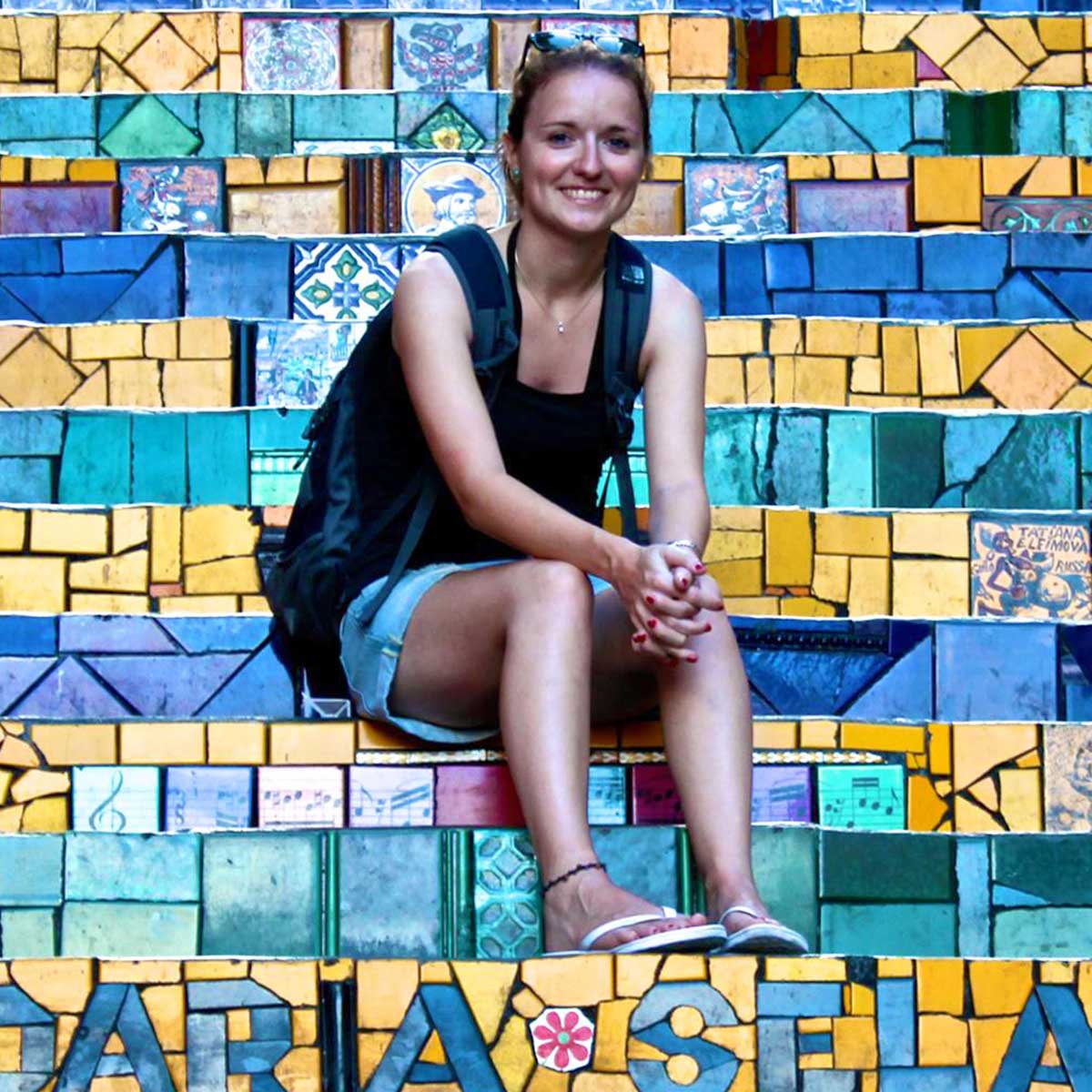
Tantse Walter is a writer, photographer and travel enthusiast that has spent over a decade facilitating global adventurous expeditions. She loves getting into the nitty-gritty of sourcing and planning itineraries, getting out and about in nature, and admiring the night sky.
Blue Origin’s all-female spaceflight urges women to shoot for the stars — but astronaut memoirs reveal the cost of being exceptional
China to 3D-print bricks on the moon using lunar dirt in 2028 to pave way for future base (video)
'Love, Death + Robots' Season 4 teaser is a maelstrom of explosions, aliens, dinosaurs, and... well robots (video)
